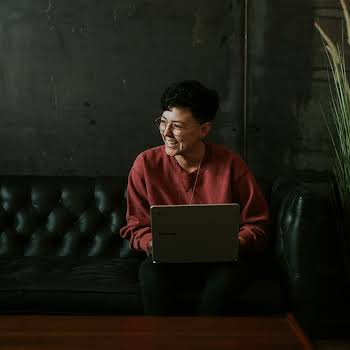
By Niamh Ennis
28th Jul 2020
28th Jul 2020
It’s time to redefine the word ‘selfish’, writes Niamh Ennis
‘Oh, good heavens, no, I couldn’t do that! I’d look selfish. People would think I’m being selfish. That would be selfish, me putting myself first.’
How often have those words come out of your mouth when someone suggests you do something that implies taking better care of yourself? I would wager, more often than even you realise!
How often have you watched someone else say or do something that required them to put themselves first and your first thought is ‘Well, erm, now, that was more than a little bit selfish’.
The truth is that, when we’re unable to put ourselves first, when we’re afraid to put the necessary boundaries in place, we find ourselves triggered by those who can.
We resent those who do what we can’t.
Now, of course, they’re not in fact being selfish and, truthfully, we are the ones in denial that this is an act of self-love rather than an act of them being self-serving.
To understand what we are talking about, let’s look at the definition of this much maligned word – selfish.
adjective: selfish
(of a person, action, or motive) lacking consideration for other people; concerned chiefly with one’s own personal profit or pleasure.
Now nowhere in that definition does it say that putting yourself first is wrong or distasteful.
Nowhere does it tell you that when you choose to look after yourself, to protect yourself, to listen to yourself, to do what makes you happy, that in that moment when you choose this you are being cruel to others or even being self-indulgent!
Let that land with you.
Really think about it and consider how often you have misunderstood what ‘putting yourself first’ actually means.
As a Change & Transformation specialist, people share their dreams and goals with me, as well as their, very often, long held ambitions, for what they had hoped to get from their lives.
Inevitably, when I ask them to describe what they believe might have been getting in their way, or what’s blocking them from going after these dreams, the reply is usually a variation of ‘I’m afraid I’ll look selfish’.
- Daughters who feel they should always be available for what their parents need them to do and sacrifice their own needs from a sense of responsibility and duty.
- Friends who think if they don’t do what their pals need them to do, they will be cast aside. Being accepted is far more important than being different.
- Partners who find themselves in co-dependent relationships and don’t feel strong enough to speak up for what they need if it means going it alone on something.
- Colleagues who strive to rise in their workplace but are fearful of resentment and dim their light to fit in. They don’t want to be accused of getting above their station so they lie low.
- What about those who use the excuse of how it ‘might’ look to others if they were to really go after what they want and so they make their decisions based on the opinions of people they have never met? It feels safer and more comfortable there.
A quote that, for me, sums this up beautifully and is attributed to Eleanor Roosevelt is this, ‘You wouldn’t worry so much about what others think if you realised just how seldom they do’.
We are located at the centre of our worlds.
We think about everything we feel and do in relation to how it impacts on our life.
It’s what we do. It’s what everyone does and thinks.
But what we forget is that this is exactly the same for everyone else. It follows therefore that nobody thinks of us more or in the same way than we do! And because that’s true, and it is, why then do we allow other people to influence so heavily the choices and decisions we make?
Finding happiness in our lives will never come from the approval of others. If we don’t learn to love and accept ourselves we will never, and I do mean never, find that acceptance from any external source.
We teach others how we deserve to be treated so if you can’t show the world that you are indeed worthy of some self-love, how can you expect to be the person that others will learn to love?
The problem with needing validation or reassurance from others is that we end up requiring it pretty much all the time. Going within, doing the work on ourselves, putting the boundaries in place and honouring them, requires real commitment but when we commit to this practice our lives slowly start to change.
The story of your life, the road you travelled, is yours to tell. Nobody else will be interested in the details of your highs and lows quite like you will be.
When you come to the final chapter you simply won’t remember how ‘Brenda, in accounts, told you once to get a grip and not be seen to be acquiring notions’ or indeed that night when that friend tried to clip your wings by telling you that ‘you’re great to be sticking with your little business’.
What they said really won’t matter by then. It shouldn’t matter now.
Stay in your lane.
Love yourself enough to know that you get to add your own plot twists.
Start by developing your very own story line.
The one you were put here to live.
Feature image: Pexels
Niamh Ennis is Ireland’s leading change & transformation specialist and founder of the RESET for Change Programme.
Niamh works with women who feel stuck, unable to move their lives forward and who finally want to commit to doing things differently.
To work with Niamh on your own bespoke private coaching programme just click here or visit www.niamhennis.com
Read more: ‘I lost the 3 most important people in my life in a matter of years. This is what it taught me about the grieving process’
Read more: ‘Perfect parenting has disorientated us so much that we risk caring about the wrong things too much, and the right things too little’
Read more: 8 powerful questions that will help you find your purpose























